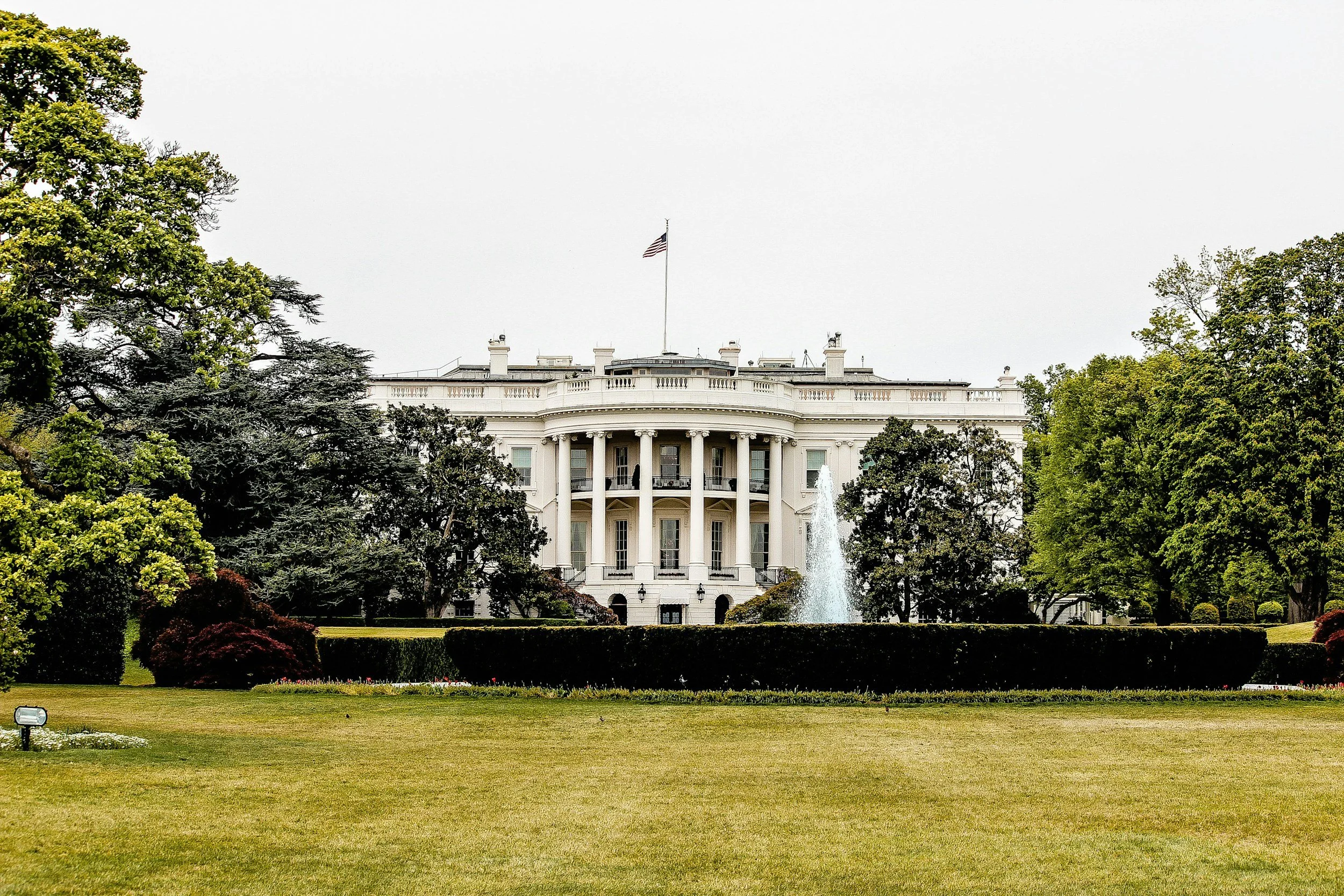“I Let You Ask It”: A Psychological Dissection of Trump’s Oct 2025 60 Minutes Interview
On 31 October 2025, Norah O’Donnell sat down with President Donald Trump for a 60 Minutes interview that turned into something more psychologically revealing than politically clarifying. The transcript reads like a case study in authoritarian charisma, a mix of dominance display, grievance politics, and self-serving rhetoric that political psychologists have been documenting since Adorno’s Authoritarian Personality (1950). Trump’s language exposes the psychic structure of a leader for whom ego, nation, and power have fused into a single moral organism.
Disclaimer
This analysis is an interpretive and educational commentary based on publicly available transcripts of the 60 Minutes interview with President Donald J. Trump aired on October 31, 2025. It applies established frameworks from political psychology and related academic literature to examine patterns of language, behavior, and cognition evident in the transcript.
The discussion is analytical and not diagnostic. No clinical evaluation of any individual is intended or implied. References to psychological concepts (such as authoritarianism, narcissism, or cognitive style) are used descriptively to illustrate communication patterns and leadership dynamics, not to assign mental health status. All quotations from the transcript are used under fair use for purposes of criticism and analysis. The views expressed in this piece represent scholarly interpretation and should not be taken as factual claims about any person’s mental health or intent.
The Transactional Frame: “That means they’ll treat me more fairly if I do.”
Before a substantive question is even posed, Trump reframes the exchange as a negotiation. When O’Donnell asks for “two more questions,” he replies, “If you want, if it helps, that means they’ll treat me more fairly if I do.” The statement converts journalistic inquiry into a transaction of fairness for access. This is a classic power-dominance orientation, one of the central authoritarian traits, where control over dialogue becomes a proxy for control over reality.
Psychologically, this move replaces mutual accountability with conditional legitimacy. The interviewer’s right to question exists only through the leader’s benevolence. In authoritarian systems, this logic scales upward: the courts, press, or legislature exist only insofar as they “treat the leader fairly.” Democratic oversight becomes an act of permission rather than principle.
The Persecuted-Hero Schema: “He was a victim, just like I was.”
When pressed about his controversial pardon of crypto-billionaire Changpeng Zhao, known as C.Z., Trump says, “This man was treated really badly by the Biden administration … He was given a jail term … They set him up ... He was a victim … just like I was.”
Here the president performs what Adorno called projection and moral identification, externalizing guilt onto an enemy (“the Biden administration”) while reclaiming virtue through shared victimhood. By aligning himself and Zhao as mutual casualties of the same “witch hunt,” Trump recasts a potential abuse of power as an act of justice. The rhetorical effect is powerful: persecution becomes proof of righteousness.
Bob Altemeyer’s research on Right-Wing Authoritarianism (RWA) describes this pattern as aggression justified in defense of purity. Trump’s narrative fuses political revenge with moral cleansing, turning self-interest into duty.
Denial and Detail: “I don’t know who he is… He’s highly respected.”
Trump oscillates between ignorance and omniscience: “I don’t know who he is. I know he got a four-month sentence or something like that… He’s highly respected. He’s a very successful guy.”
This contradiction illustrates instrumental truth-telling, where statements are shaped for advantage rather than coherence. Political psychologists link such behavior to low integrative complexity, the tendency to avoid reconciling conflicting information. Authoritarian leaders often maintain support despite factual inconsistency because their confidence, not their accuracy, signals strength.
The oscillation serves a defensive purpose. Ignorance shields him from culpability, while insider knowledge asserts competence. The switching itself manages cognitive dissonance: within Trump’s self-defined narrative, moral conviction outranks factual coherence.
National Greatness as Moral Alibi: “If we don’t do it, it’s going to go to China.”
When challenged about potential conflicts of interest, Trump shifts from ethics to geopolitics: “I wanna make crypto great for America. That's the only thing. I don't wanna have somebody else have crypto and have China be number one in the world in crypto.”
This is threat sensitivity reframed as patriotism. Authoritarian personalities show heightened anxiety about disorder and external threat. They manage this anxiety through calls for unity under strong leadership. Trump’s invocation of China functions both as moral displacement (“this isn’t about me”) and as national justification (“it’s about America’s survival”).
By redefining the ethical question—was the pardon self-serving?—into a civilizational one—will America lose to China?—he converts moral accountability into strategic necessity. This resembles Erich Fromm’s idea of the escape from freedom, the psychological comfort of equating obedience to the leader with defense of the nation.
The Performance of Control: “I’d rather not have you ask the question. But I let you ask it.”
O’Donnell presses again: “How do you address the appearance of pay-for-play?” Trump interrupts, “I’d rather not have you ask the question. But I let you ask it… I could’ve walked away.”
Here the interview becomes a ritual of permission. In linguistic terms, this is a dominance marker—the speaker re-establishing hierarchy by deciding who speaks and when. It satisfies a psychological need for predictability through subordination: anxiety decreases when the environment conforms to his will.
Adorno described this as the “authoritarian submission–dominance dialectic,” where leaders both demand obedience and feel safe only when dominance is confirmed. The same pattern in governance erodes deliberation, as every institution must signal deference for the leader to feel secure.
Moral Inversion: “It may look bad if I do it. I have to do the right thing.”
Few sentences capture authoritarian reasoning more neatly. Trump concedes the appearance of wrongdoing, then immediately recasts it as virtue. This is moral inversion, where ethics are defined by intent rather than rule. If the act benefits the nation or the self merged with the nation it becomes inherently good.
Psychologically, this reflects ego-syntonic morality, where actions feel right because they preserve self-image, not because they meet external standards. Lifton’s studies of totalist leaders show the same pattern, with transgressions justified as necessities for salvation. When moral authority resides inside the individual, no institution can challenge it.
The Chant of Certainty: “We’re number one… We’re number one… We’re number one.”
When cornered, Trump resorts to repetition: “We’re number one in crypto… We’re number one in AI… We’re number one in crypto because I’m president.” Repetition serves as both self-soothing and audience conditioning. Research on persuasion shows that repeated statements increase perceived truth through familiarity, known as the illusory-truth effect.
Lifton called this “psychological totalism,” the use of repetitive language to close off alternative interpretations. In authoritarian communication, repetition performs the same role as censorship by flooding cognitive space until contradiction feels disloyal.
Family as Extension of Self: “My sons are into it… My wife just had a bestseller.”
Trump repeatedly cites family success: “My sons are into it… My wife just had a number one bestseller.” The pattern suggests a dynastic worldview in which competence and virtue are familial rather than institutional. Political psychologists describe this as ego diffusion, where the self extends through kinship networks that reinforce loyalty.
Adorno called this the authoritarian family romance, with hierarchical family structure serving as a template for governance. When the state is imagined as family, dissent resembles betrayal instead of disagreement.
9. Externalization of Threat: “That’s the Biden government.”
Each time O’Donnell says “the government,” Trump corrects her: “That’s the Biden government.” This phrase dissolves the neutral state into personal ownership. The U.S. government becomes a rival faction rather than a national institution. Adorno saw this as anti-institutional partisanship, loyalty to people over principles. It is also a subtle authoritarian move: the state exists only when it serves the in-group. When power shifts, legitimacy vanishes.
Simplification and Anti-Intellectualism: “You know that. They let ’em all go.”
Trump often concludes assertions with “You know that.” This shuts down debate and replaces evidence with assumed agreement. Complex issues of law and regulation are simplified into moral tales of good versus corrupt. Adorno identified this as cognitive rigidity and anti-intellectualism, a preference for certainty over complexity.
Empirical studies of RWA show low integrative complexity, the ability to consider multiple viewpoints. In public communication, such simplification can appear decisive to supporters but erodes the analytic habits that democracy requires.
Emotional Regulation Through Grandiosity
Each challenge from O’Donnell triggers expansion. Asked about a single pardon, he enlarges the topic to global rivalry and then to personal triumph: “We’re number one.” This grandiosity loop is defensive. Clinical research on narcissistic leadership (Kernberg 1975; Post and Robins 1993) describes this as defensive inflation, the ego expanding to prevent feelings of shame. The more criticism threatens self-image, the more spectacular the claim must become. This is self-protective and politically contagious because followers internalize the leader’s pride as their own.
The Reality-Construction Function
Taken together—negotiated fairness, persecution narrative, moral inversion, and repetition—the transcript demonstrates what Lifton called reality reconstruction, the replacement of shared facts with a leader-centered moral universe. Trump’s “I let you ask it” and “We’re number one” are performative decrees that attempt to make the world conform to the statement.
In this construction, facts are subordinate to loyalty, and contradiction proves authenticity. Coherence is unnecessary when dominance itself defines truth.
Comparative Alignment with Empirical Models
Across major research frameworks, Trump’s discourse aligns with seven of ten authoritarian-populist traits:
| Dimension | Example Quote | Model Alignment | Risk |
|---|---|---|---|
| Dominance Orientation | “I let you ask it.” | Milburn and Watman | Normalizes command hierarchy. |
| Projection | “Biden’s corrupt government.” | Adorno | Fuels conspiracism. |
| Grandiosity | “We’re number one because I’m president.” | Lifton and Fromm | Merges ego and nation. |
| Moral Inversion | “It may look bad, but I had to do the right thing.” | Adorno, RWA | Ethics become subjective. |
| Threat Sensitivity | “If we don’t do it, China will.” | Milburn and Watman | Creates siege mentality. |
| Anti-Intellectualism | “You know that.” | Adorno | Suppresses complexity. |
| Reality Control | Repetition of “witch hunt.” | Lifton | Weakens fact-fiction boundary. |
This configuration fits the model of authoritarian charisma, confidence without consistency and moral certainty without evidence.
Psychological Portrait in Aggregate
| Domain | Manifestation | Implication |
|---|---|---|
| Self-Concept | Inflated, fused with nation. | Challenges to ego equal attacks on country. |
| Cognition | Binary, low complexity. | Policy becomes moral crusade. |
| Emotion | Dominance and grievance. | Mobilizes resentment politics. |
| Morality | Intention-based. | Rule of law replaced by personal virtue. |
| Interpersonal Style | Controlling and transactional. | Public discourse becomes loyalty test. |
This is narcissistic authoritarianism, a structure that turns psychological defense into political method.
Democratic-Norm Consequences
Erosion of Institutional Boundaries: calling it “the Biden government” personalizes the state.
Normalization of Impunity: ethical concerns reframed as patriotism.
Dynastic Entitlement: family success equated with national success.
Delegitimization of the Press: questions treated as favors.
Epistemic Collapse: repetition replaces verification.
Each element alone could be a rhetorical style; together they form a coherent psychological system oriented toward control through belief rather than persuasion through evidence.
Simply put
Across the 2025 60 Minutes transcript, Trump’s psychological profile emerges with empirical clarity. He experiences scrutiny as persecution, converts criticism into proof of righteousness, and manages anxiety through dominance and repetition. His moral compass points inward: right is whatever he intends.
The resulting persona matches what Lifton called charismatic totalism, a leader who turns private psychology into public ideology. When Trump tells O’Donnell, “I’d rather not have you ask the question. But I let you ask it,” he is not merely interrupting a journalist. He is staging the core drama of modern populism, where power grants permission to accountability.
When he declares, “We’re number one because I’m president,” he fuses self and state into a single truth. Empirically, the interview confirms decades of research by Adorno, Altemeyer, Milburn, and Lifton. Psychologically, it portrays a man whose equilibrium depends on commanding the narrative space, whose morality is ego-syntonic, and whose charisma thrives on grievance.
Politically, it shows the danger of that psychology when it governs. When “I let you ask” becomes a national principle, democracy is reduced to a courtesy extended by power.
Source
References
Altemeyer, B. (1996). The authoritarian specter. Cambridge, MA: Harvard University Press.
Fromm, E. (1941). Escape from freedom. New York, NY: Farrar & Rinehart.












